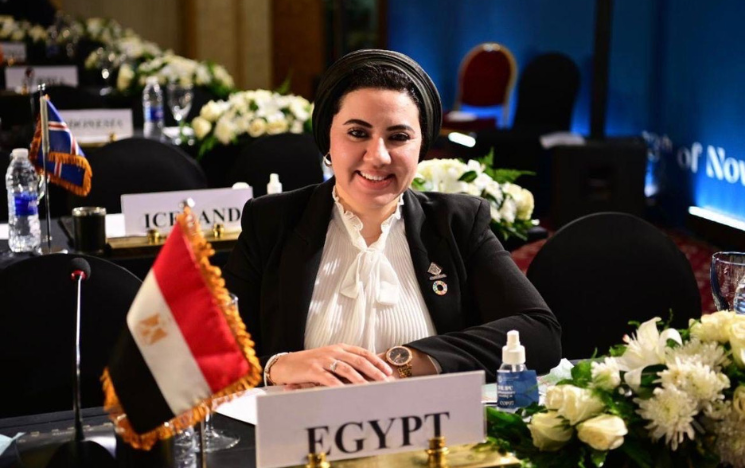Amira Saber
Amira Saber (MA Development Studies 2020) is an Egyptian Member of Parliament (MP) who advocates for climate action, AI governance and youth empowerment, while leading on foreign relations and social development.
Amira’s story
Amira started studying at Sussex as a Chevening Scholar and, in the same year, won a parliamentary seat in her home country for the first time.
Amira is a policy leader and serves as the Secretary General of the Foreign Relations Committee. The first bill she introduced to Egyptian Parliament focused on food waste, highlighting how the problem is contributing towards Egypt’s hunger and poverty rates, and impeding five Sustainable Development Goals (SDG’s).
In 2025, she was elected as a member of the Egyptian senate and as Secretary General for the Human Rights and Social Solidarity Committee. She is also serving as the Vice President of the Egyptian Social Democratic Party. On top of her roles in Egyptian Parliament, Amira is also the Presiding Officer of The World Bank Group Global Young MP Initiative and The Parliamentary Network.
She was named as the Social Action category winner at the 2025 Study UK Alumni Awards in Egypt for her work championing climate, women’s rights and youth empowerment.
Why did you choose to study at Sussex?
Because it is home to Institute of Development Studies (IDS), a true one-of-a-kind hub for development studies. I wanted an education that combined rigorous scholarship with practical, public-facing impact. Since day one I walked in the footsteps of renowned practitioners and scholars, and the lessons I learned there continue to guide me in my public service career.
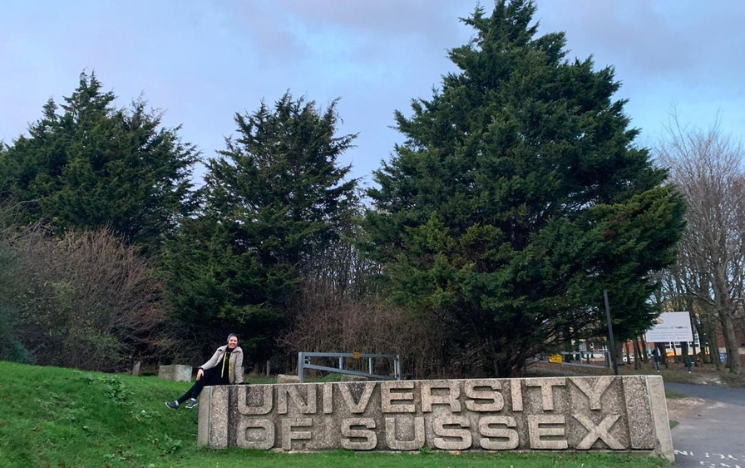
What did it feel like to win a parliamentary seat in Egypt?
It was a paradoxical experience. I entered Parliament with big dreams for change, but I was young and a first-time candidate. I was fortunate to have the encouragement of professors and colleagues abroad, as well as the support of friends and peers in Egypt.
At the same time, I carried the awareness that politics in Egypt is never simple. I felt both proud and restless – proud to represent my community, yet restless because I knew the real challenge was not winning the seat, but what would come after: navigating a constrained political space while still pushing for meaningful change.
My term also witnessed the war on Gaza and a sharp shift in the international landscape, a term that was charged with regional grief, diplomatic tension and national introspection. Egypt’s role as a mediator was crucial and I had a double burden to navigate between domestic and foreign policy, but I am proud that I used parliamentary diplomacy to defend the Palestinian cause and to call internationally for an immediate ceasefire.
As a first-time MP, I tried to use momentum to push concrete reforms… For me, change comes from putting bold ideas on the table, even in a difficult political space.” AMIRA SABER
MA Development Studies
As a first-time MP, how do you try to push for meaningful, progressive change?
I tried to use momentum to push concrete reforms. When COP27 was hosted in Sharm El-Sheikh, I introduced a climate adaptation draft bill aiming for carbon neutrality. I also put forward a bill on AI focusing on balancing innovation with safety, rights and trust and introduced legislation on food waste – critical in light of Egypt’s economic and water crisis. For me, change comes from putting bold ideas on the table, even in a difficult political space.
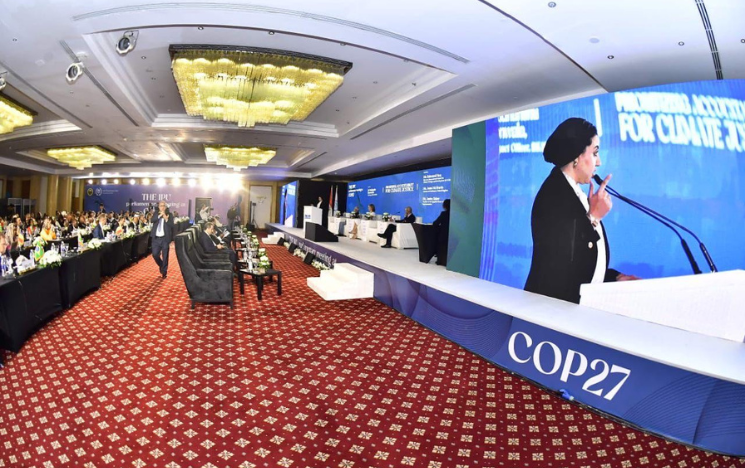
You often represent marginalised groups in Parliament. In what ways do you make sure these voices are heard?
I represent many constituents – not just in terms of geography, but across lived experience. This includes youth whose futures feel uncertain, women whose participation is still limited, the educated middle class grappling with economic pressures, and members of the civil democratic opposition who are wondering ‘what’s the alternative?’.
I wasn’t always a politician and I know how isolating it feels when no one listens. In my five-year term, I’ve made it a point that legislation begins with listening, especially to those most affected. My goal has been to make Parliament a place where my constituents voices matter and are heard – even if I alone cannot convince all my colleagues to act – I can at least honour their dignity and the value of their citizenship to be heard.
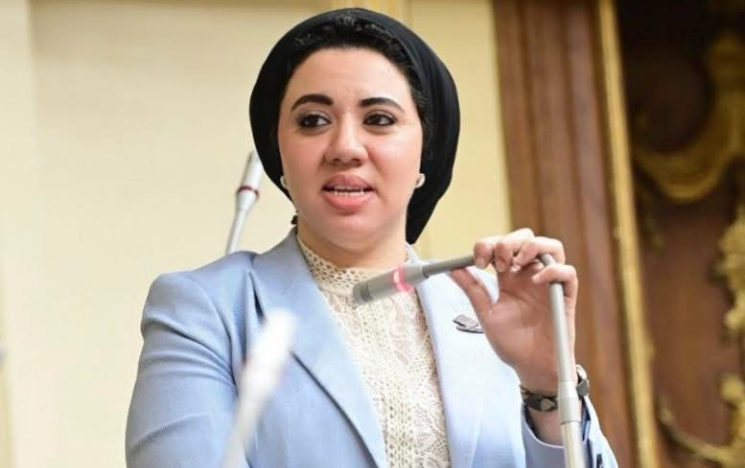
How did your time at Sussex affect your work in Parliament in Egypt?
Sussex gave me more than knowledge; it gave me a way of thinking and working. What I learned about governance and development management became directly useful in my work in Parliament. From engaging with stakeholders to shaping participatory decision-making, I carried those lessons with me. Even my dissertation became one of my first oversight tools for examining Egypt’s Takaful and Karama project.
Too often, schools focus only on knowledge, leaving skill-building to internships or post-graduate work. That was not the case at Sussex.
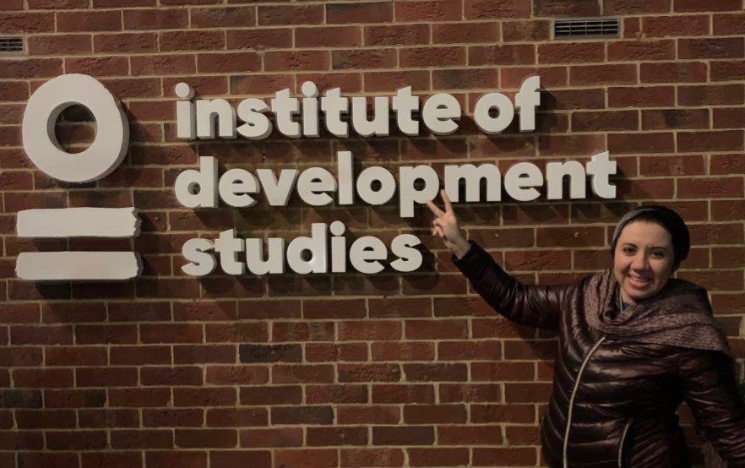
Why do you think mentorship is so important?
Mentorship matters because it goes beyond theory and passes-on unwritten knowledge that comes from experience. In politics, there is a lot you only learn by being in the field, like how things work in reality and why some approaches succeed while others fail. At the same time, mentorship creates a safe space to try new ideas. It gives you the confidence to take risks, learn from mistakes and adapt without losing direction. For me, this combination has been one of the most valuable parts of having mentors, both at Sussex and beyond.
What advice would you give to Sussex students?
Don’t underestimate the value of stepping outside your comfort zone. At Sussex, you have access to people from so many backgrounds and perspectives. That is rare and it is worth making the most of. Push yourself to meet people you wouldn’t normally talk to and join discussions that challenge you. Who knows, the person sitting next to you in class or your roommate could be the next prime minister in 20 years or on the Forbes under-30 list in five. You have nothing to lose and everything to gain.
Also, make sure you invest in transferable skills. The rapid development of AI and the global development finance crisis have shown that many people lose their jobs in moments of change. Those who have transferable skills were able to adapt more quickly and find opportunities that suit their interests.
